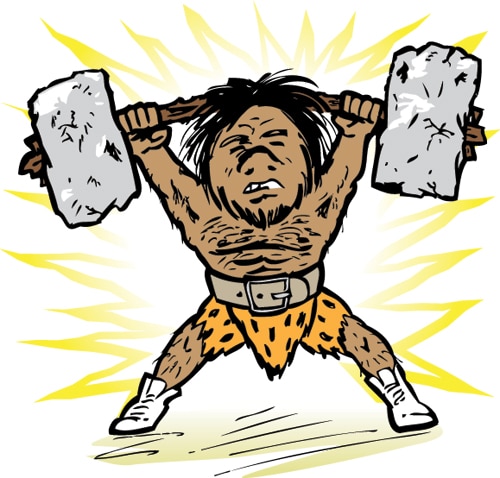It's funny how sometimes ideas need time to fully take hold, and turn from concepts into tangible actions. I've spent countless hours reading about nutrition, and studying what other people do, not to mention the time I've put into experimenting on myself. I've just recently started to really get things right.
Feeling too thin, was a good problem for me, but it was a problem nonetheless. My body changed fast, and my mind was not able to keep up. I've been a bigger guy my whole life, and suddenly feeling very thin was a strange experience. After the twelve weeks were over, I gained back a bit of weight, but remained leaner than before the start of the experiment. I have maintained that size very easily since, and just recently have decided to focus on losing fat again. I think that this mental aspect of losing weight is often overlooked. Imagine someone going from obese to lean in a short amount of time. This is going to require a complete lifestyle overhaul. Habits will have to change, the way you think about food will have to change, and you will have to get used to looking at a new person in the mirror. Even if this new person looks good, you still need time to recognize that the new person is you.
Later this week, I'll post details about what I've come up with to lose weight without spending my free time drooling over low carb dessert recipes...because that is just not cool.
The process
During the twelve week challenge I did last summer I lost a lot of weight and was looking pretty thin by the end of it. So what was the problem? Firstly, I became a neurotic fool, thinking about food all the time, counting calories, weighing food, avoiding social situations where I would be "forced" to stray from my path. Secondly, by the end of it I felt too thin. In fact, one of my good friends commented on my "Christian Bale look"...sadly, he may have been referring to the Christian Bale from "The Machinist" look.Lessons Learned
The way I see it, the whole problem with counting calories, and obsessing over details, is that it put me into a mindset of "what can I get away with?" Knowing that I could eat x-amount of calories led me to try to find creative ways of eating as much as I could without going over my "calorie limit". Dieting boils down to eating less food. Counting calories led me to try to eat the maximum amount within the confines of the diet. These are conflicting thought processes, and it is a recipe for failure.Feeling too thin, was a good problem for me, but it was a problem nonetheless. My body changed fast, and my mind was not able to keep up. I've been a bigger guy my whole life, and suddenly feeling very thin was a strange experience. After the twelve weeks were over, I gained back a bit of weight, but remained leaner than before the start of the experiment. I have maintained that size very easily since, and just recently have decided to focus on losing fat again. I think that this mental aspect of losing weight is often overlooked. Imagine someone going from obese to lean in a short amount of time. This is going to require a complete lifestyle overhaul. Habits will have to change, the way you think about food will have to change, and you will have to get used to looking at a new person in the mirror. Even if this new person looks good, you still need time to recognize that the new person is you.
What Next
I have gotten used to seeing a thinner Dave in the mirror, and finally feel mentally prepared to see a super lean Dave. I've also built a decent amount of muscle in the interim, which will hopefully mitigate some of the "scrawny" feelings I had before.Later this week, I'll post details about what I've come up with to lose weight without spending my free time drooling over low carb dessert recipes...because that is just not cool.

.gif)












